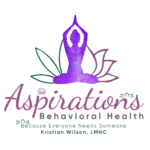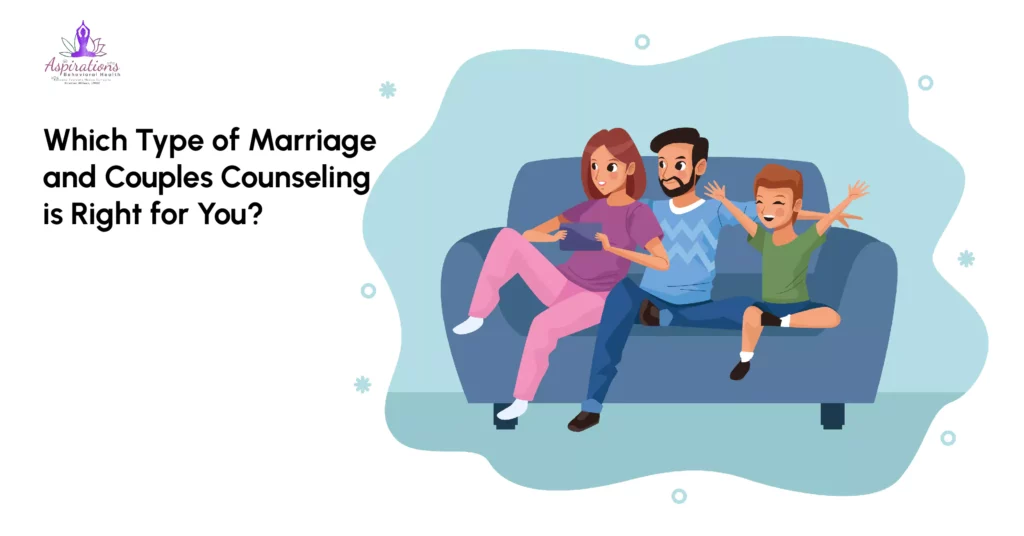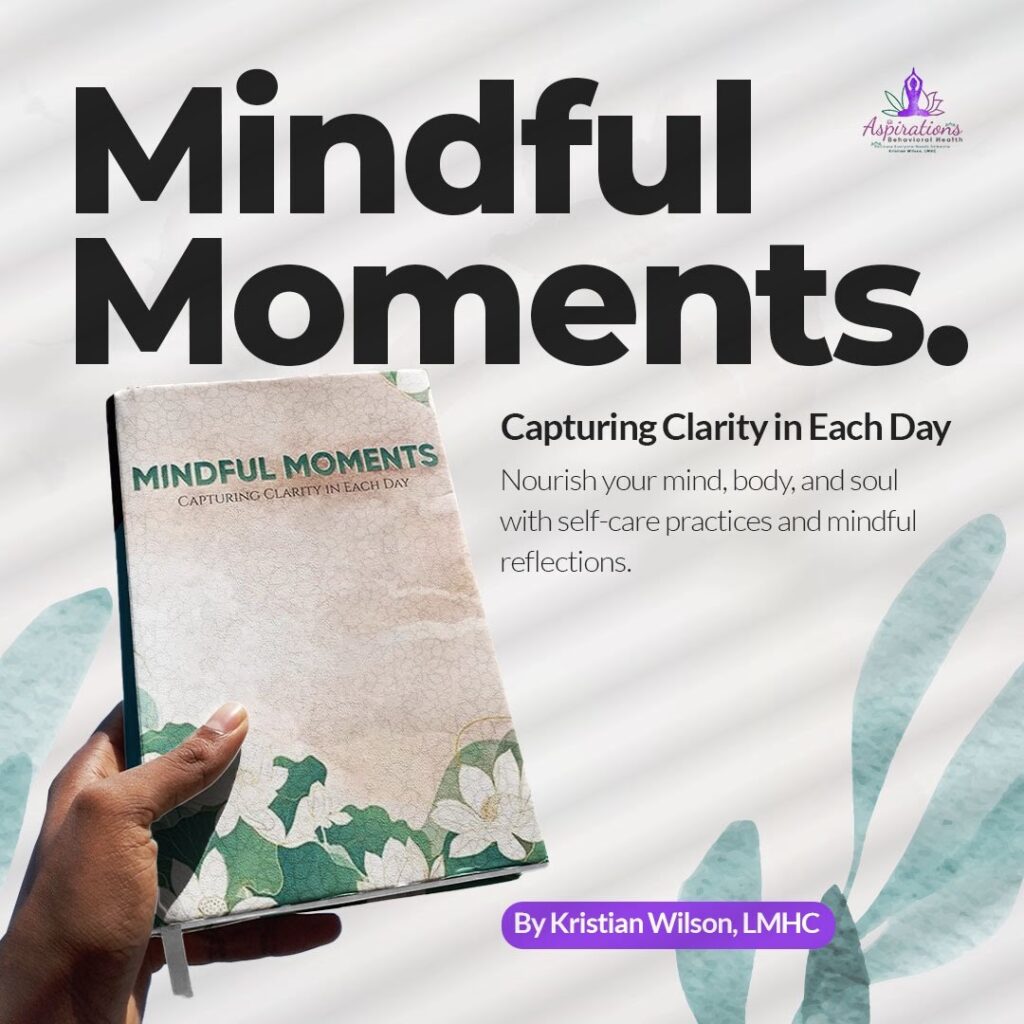Are you also facing tough times handling your relationship nowadays? Or are you also looking to save your marriage again through individual and couple counseling? Navigating the maze of relationships can sometimes be intricate. With various types of couples therapy and types of marriage counseling available, it can be challenging to pinpoint which path is ideal for you.
Yet, diving into this world can reveal a treasure trove of options tailored for every unique relationship challenge. Discovering the most recommended marriage counseling techniques can be the key to unlocking a harmonious future for couples. Dive in, and let’s embark on this illuminating journey together.
Takeaway
- The journey of relationships is complex, and sometimes, navigating through its twists and turns requires expert intervention.
- This comprehensive guide offers insights into nine unique therapy types that cater to diverse relationship challenges.
- Whether you’re seeking to reignite a lost spark, resolve deep-seated issues, or enhance communication, there’s a therapeutic approach tailored to your needs.
- As you explore these options, remember that taking the first step towards healing and understanding is already a victory in the realm of love.
Explore the 9 Different Types of Marriage & Couples Counseling
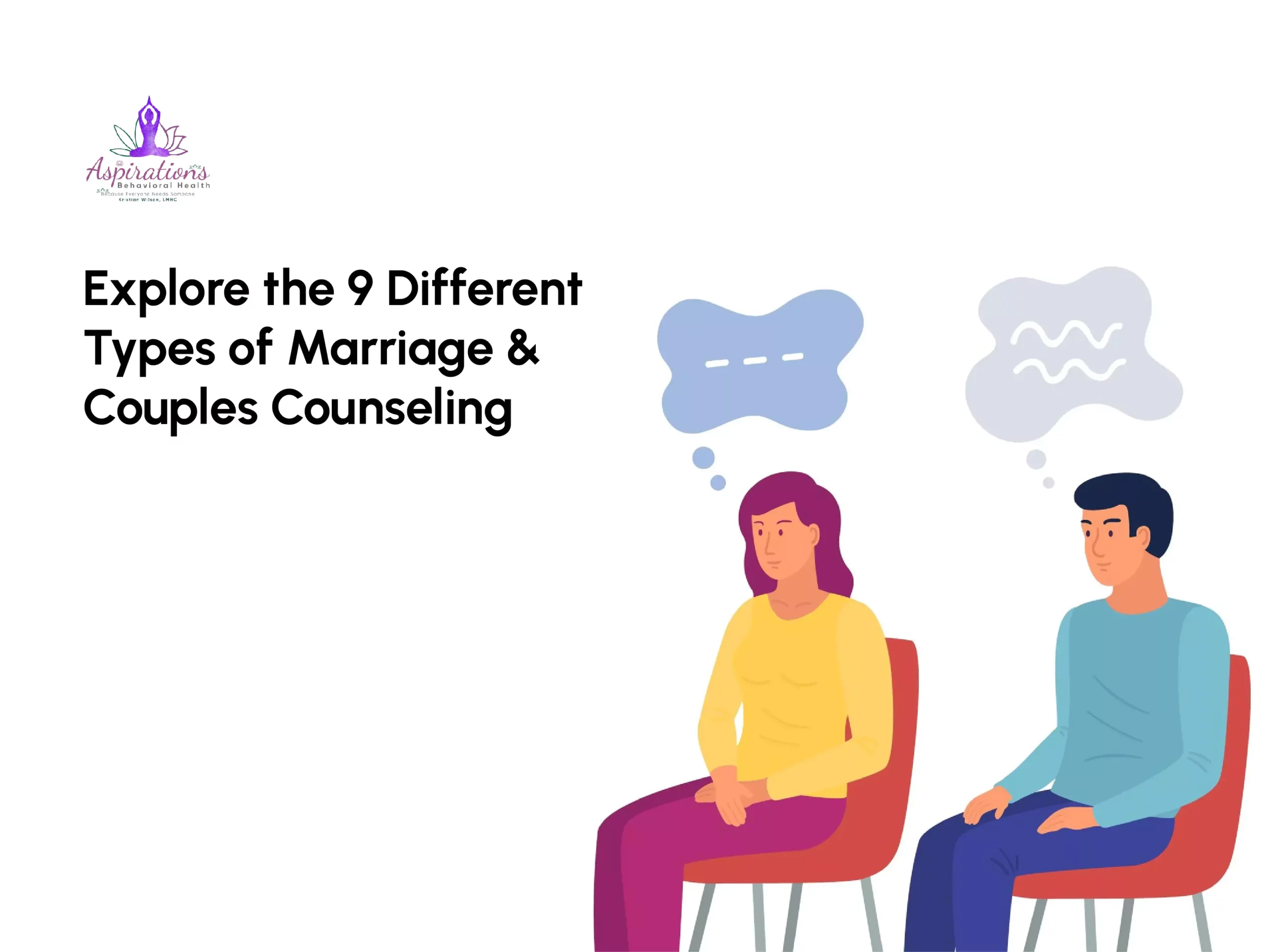
In the diverse world of relationships, the vast array of marriage & couples counseling types offers a beacon of hope for every unique challenge. From reconnecting lost sparks to navigating turbulent waters, there’s a therapeutic approach tailored for each journey. Taking that step towards understanding the most suitable method can be the transformative key to a harmonious, lasting bond.
1. Solution-focused therapy
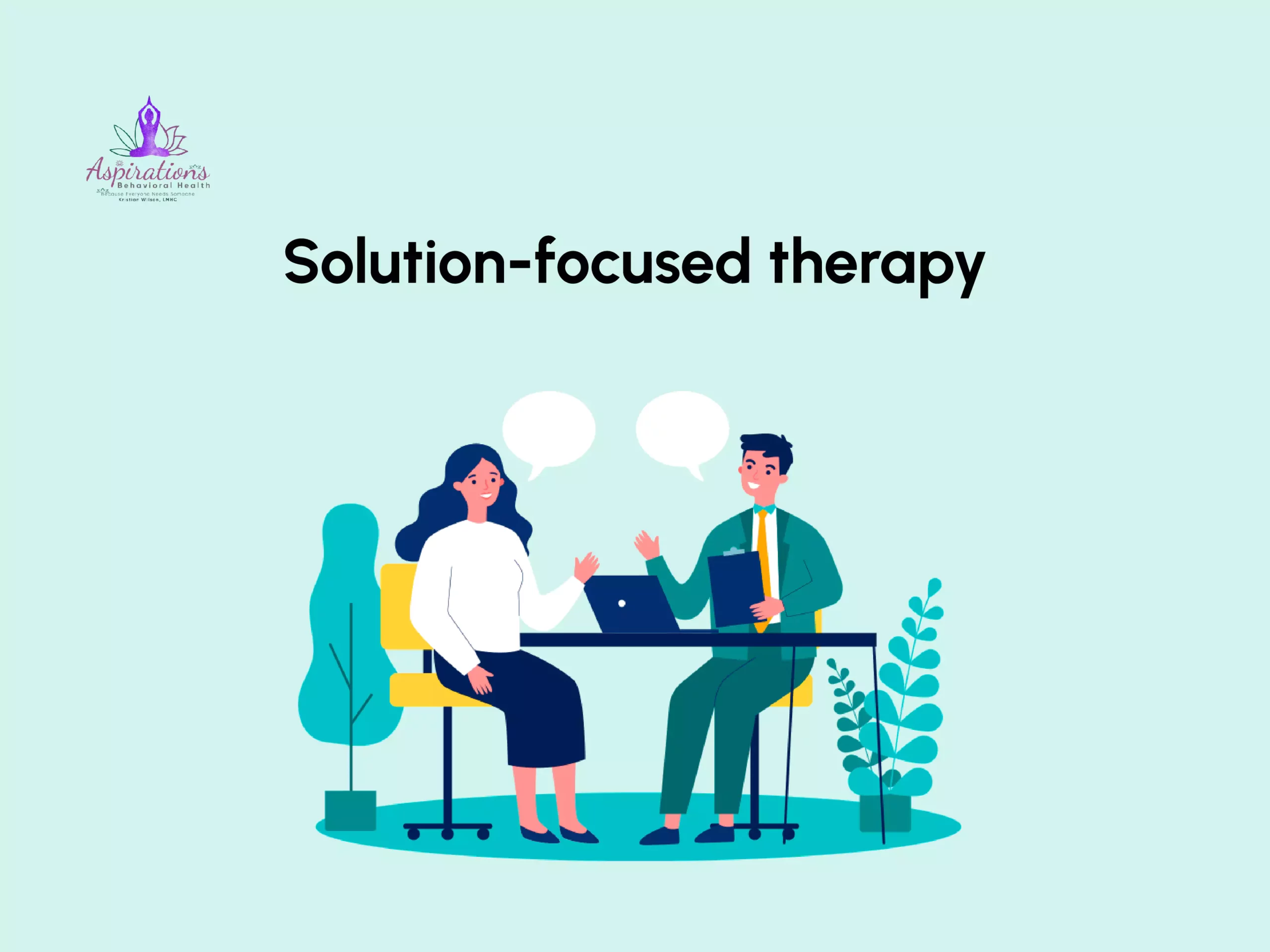
Solution-oriented therapy is a therapeutic method that focuses on finding answers rather than concentrating on problems. Rather than delving deeply into past traumas or issues, it assists clients with visualizing a desired future and outlining the actions to accomplish it.
It is a very successful strategy for persons who desire to change their behavior or mental patterns rapidly and specifically. SFT’s short duration frequently results in a reduced treatment time, making it both time- and cost-effective. Overall, solution-focused treatment fosters resilience, hope, and the intrinsic ability of individuals to create their answers.
Benefits of the Solution-focused Therapy
- Offers effective marriage guidance by focusing on solutions rather than marital problems.
- Supports various types of relationship counseling, catering to diverse relational challenges.
- Enhances clients’ confidence by highlighting their strengths and abilities.
- Promotes faster resolution, making it a cost-effective and time-saving therapeutic choice.
2. Narrative therapy
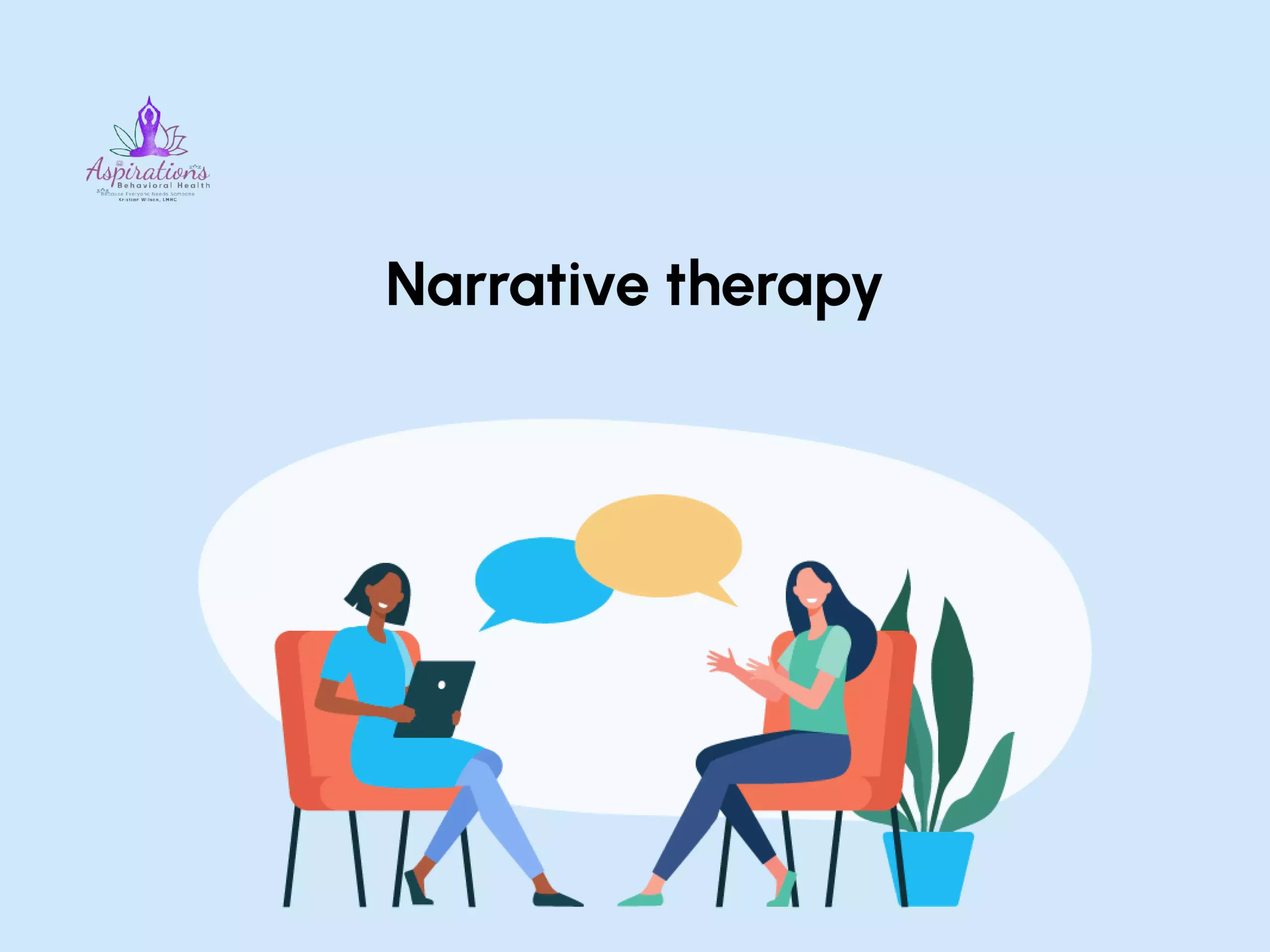
Narrative therapy is a powerful therapeutic approach that focuses on people’s tales about their lives. It is founded on the idea that our identities are shaped by the tales we tell ourselves and the stories others tell us. Narrative therapists assist clients in analyzing, comprehending, and rewriting these stories to reflect their genuine selves better.
The goal is not to change events but to alter the history that surrounds them. This treatment separates people from their difficulties, allowing them to externalize and tackle them more objectively.
Benefits of Narrative Therapy
- Tailored for various couple types, enhancing mutual understanding and empathy.
- Addresses relationship issues therapy needs by reshaping unhelpful relationship stories.
- Empower individuals to reclaim their personal narratives from societal or external influences.
- Facilitates a deeper understanding of oneself through the exploration of life stories.
3. Imago relationship therapy
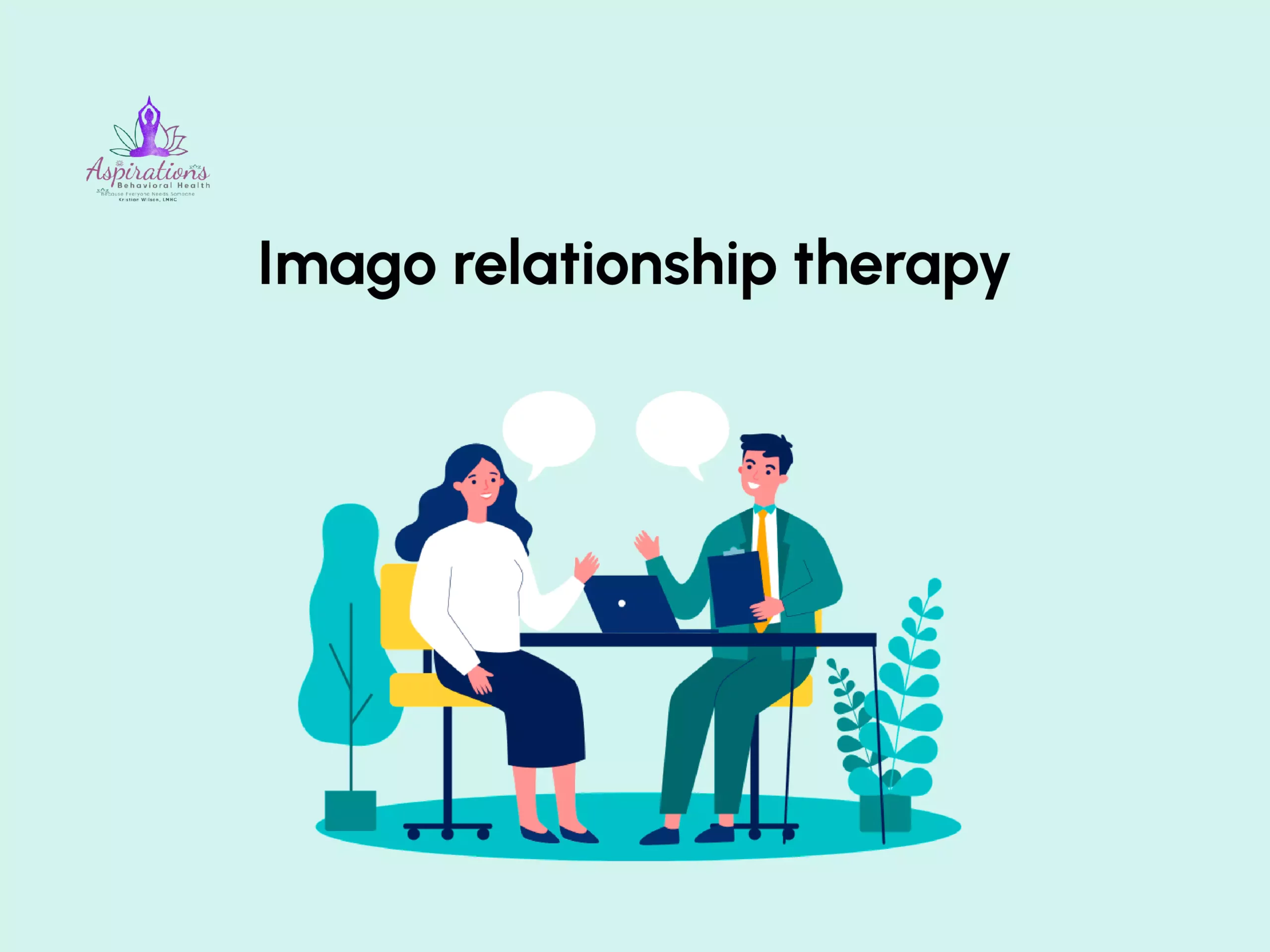
Imago relationship therapy is a type of relationship therapy that focuses on the link between couples’ childhood experiences and their adult relationship patterns. According to Harville Hendrix and Helen LaKelly Hunt’s therapeutic method, we often seek companions that resemble important persons from our early lives, not necessarily in appearance but in emotional dynamics.
The notion is that when we play out familiar events with our partners, we subconsciously try to repair old scars. During the sessions, partners learn to engage in “intentional dialogue,” an organized discourse fostering understanding and empathy. The goal is to transition from guilt and response to comprehension and connection.
Benefits of the Imago Relationship Therapy
- Tailored for various types of couples, addressing unique relationship dynamics.
- It is a profound marital therapy, diving deep into underlying emotional patterns.
- Equips couples with effective communication tools to reduce conflicts and misunderstandings.
- Encourages personal growth by reflecting on childhood experiences and their influence on adult relationships.
4. Emotion-focused therapy
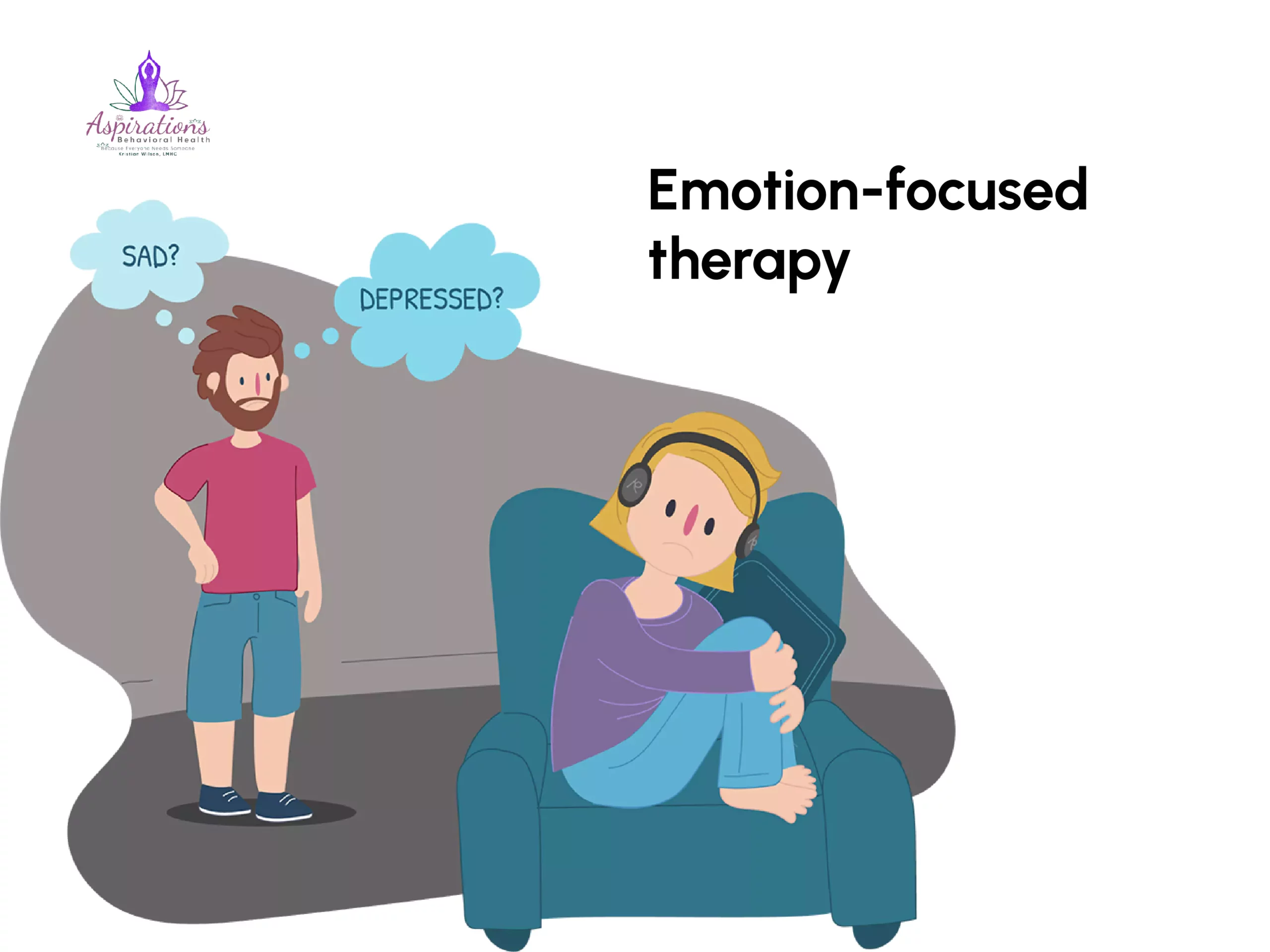
Emotion-Focused Therapy (EFT) is a therapeutic method that holds emotions important to the human experience and the therapeutic process. EFT is an evidence-based treatment by Leslie Greenberg and colleagues focusing on emotional transformation to promote long-term improvement.
This type of treatment acknowledges the role of emotions in my decisions, personal experiences, and interpersonal interactions. EFT assists clients in recognizing, comprehending, and managing their emotions. It provides a safe space for clients to explore and express suppressed or unknown emotions to support healing and progress.
Also like to read: Does Marriage Counseling Work after Infidelity? Answered By Expert
Benefits of Emotion-focused Therapy
- Versatile among types of relationship counseling, addressing both individual and couple needs.
- Often recommended marriage counseling method, owing to its deep emotional exploration.
- Enhances emotional awareness, enabling healthier emotional expression and processing.
- Provides clients with coping strategies for effectively managing intense or disruptive emotions.
5. Discernment Counseling
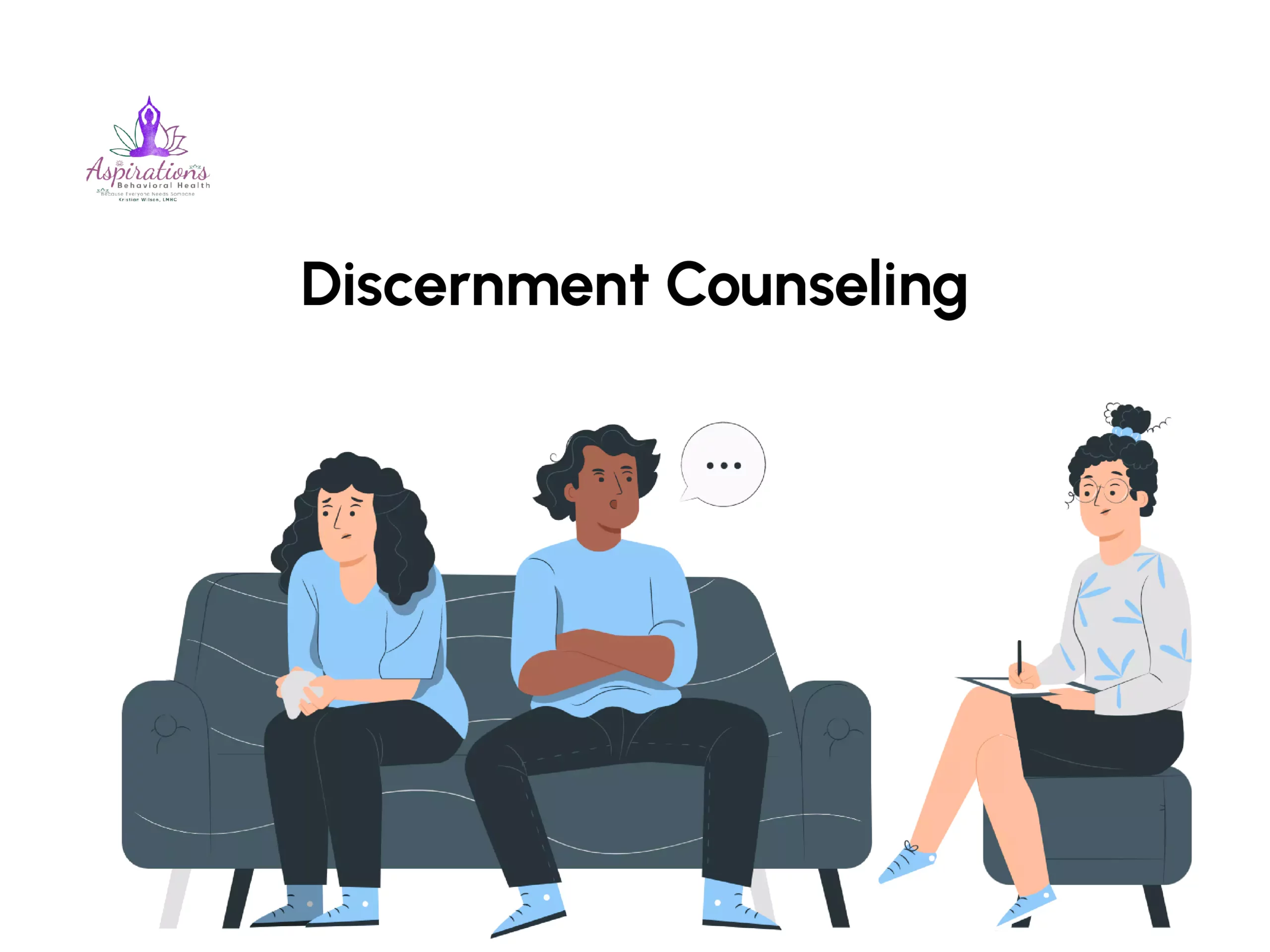
Divorce counseling is a treatment specifically designed for couples considering divorce, but it is unclear if it is the best choice for them. It varies from standard marriage counseling in that it focuses on assisting couples in understanding their options, whether reconciliation, divorce, or maintaining the status quo.
When making decisions, the ultimate goal is clarity and security. There will be group talks and one-on-one conversations with each partner during the sessions. The counselor serves as a neutral beginning point for couples, assisting them in exploring their feelings, evaluating the roots of their existing marital problems, and weighing the benefits and drawbacks of each alternative path.
Benefits of Discernment Counseling
- Offers clarity for couples on the fence about divorce or reconciliation.
- Provides a structured environment to reflect on the relationship’s strengths and weaknesses.
- It helps individuals understand their role in marital challenges.
- Reduces the chances of regret by ensuring well-informed decisions about the relationship’s future.
6. The Gottman Method
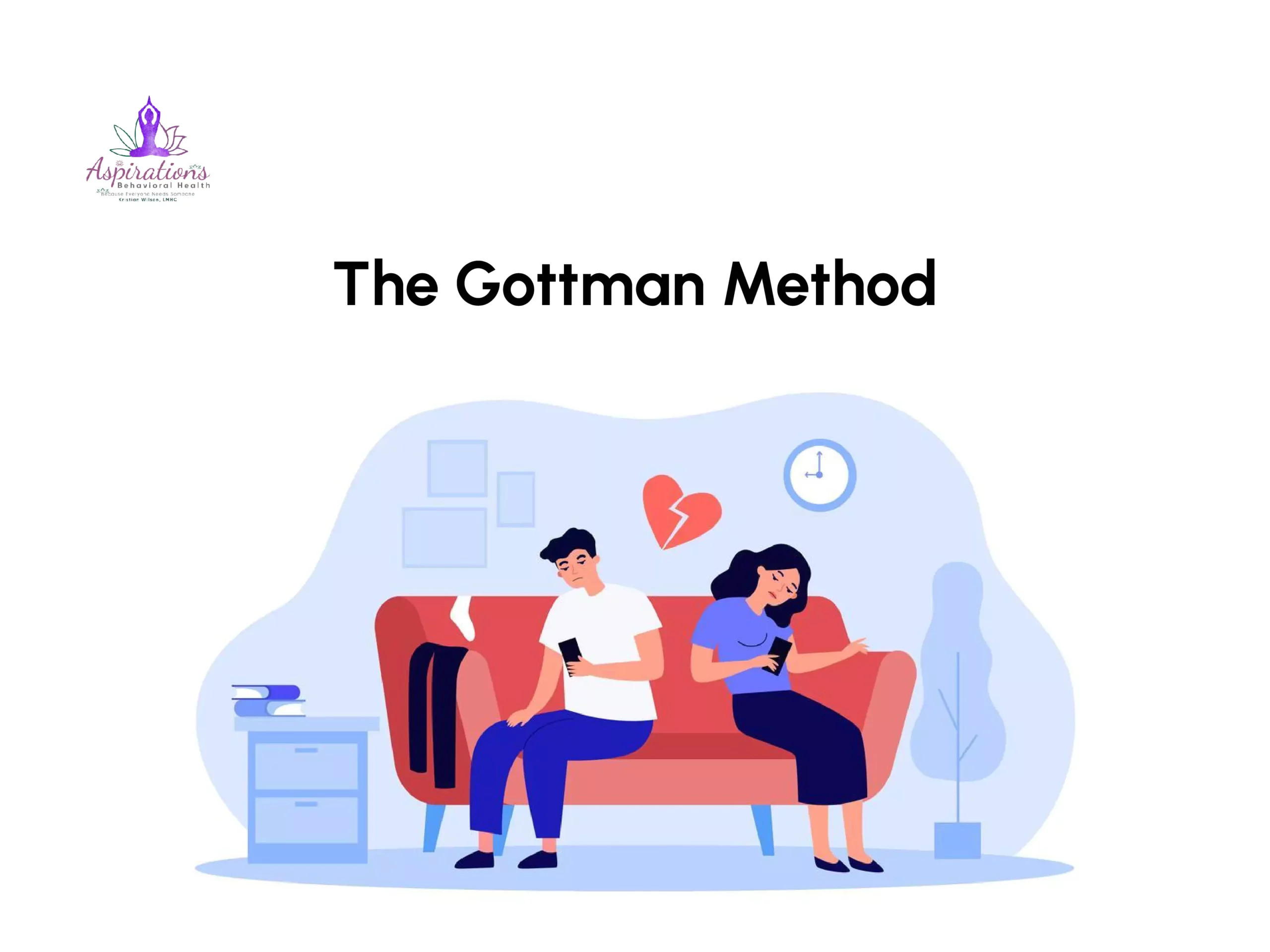
Dr. John and Julie Gottman established the Gottman form, a research-based form of relationship counseling. Based on almost four decades of study on relationship stability, this strategy strives to promote relationship happiness through improved communication, understanding and shared meaning. The Gottmans found particular behaviors that can predict divorce with amazing accuracy based on observations of thousands of couples.
These realizations created the Sound partnership House Theory, which explains the seven necessary components of a healthy partnership. Various exercises and treatments are used in therapy to build closeness, handle conflict, and promote mutual appreciation. The “Love Lab,” where couples’ interactions are watched, is one of the method’s distinguishing aspects. Their physiological responses are also recorded to understand their interaction better.
Benefits of the Gottman Method
- Recognized by many as one of the best marriage counselors’ techniques, ensuring high-quality therapy sessions.
- Provides excellent marriage guidance, teaching couples the art of conflict management and deepening mutual understanding.
- Versatile among types of relationship counseling, addressing various relationship stages and issues.
- Uses scientific metrics and tools to assess relationship health and predict potential future challenges.
7. Positive Psychology Therapy
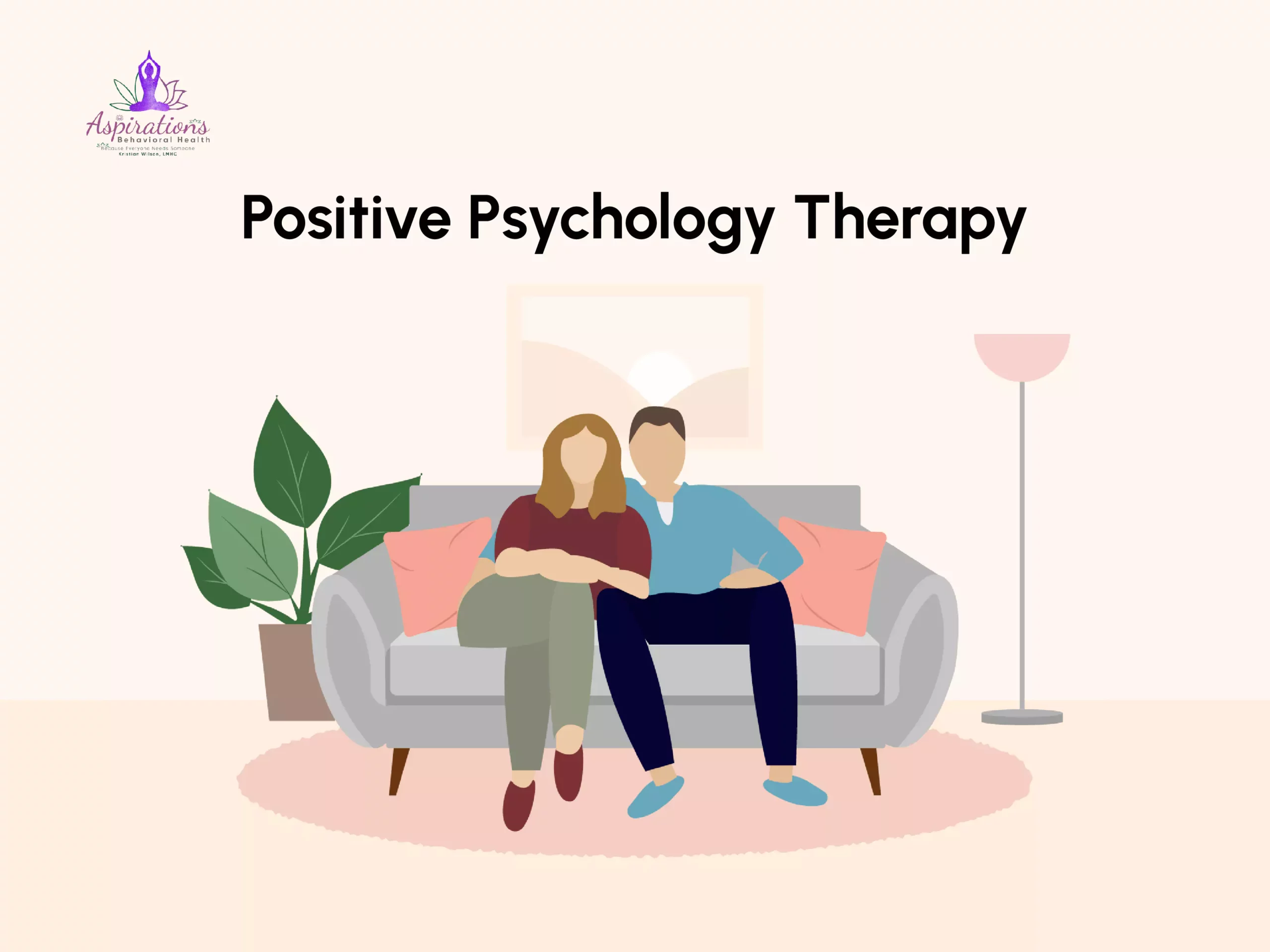
Positive psychology (PPT) therapy, instead of simply healing pain and suffering, focuses on fostering and enhancing positive human attributes. Based on the positive psychology ideas developed by Dr. This therapy approach, according to Dr. Martin Seligman focuses on strengths, virtues, and the characteristics that define a meaningful life. PPT aims to help people realize their full potential by cultivating values like appreciation, hope, resilience, and healthy relationships.
Instead of focusing primarily on what is wrong or not working properly, PPT identifies and builds on what is right. It assists individuals in developing positive goals, recognizing their own strengths, and adopting well-being initiatives. This therapeutic paradigm provides a new perspective on mental health by emphasizing flourishing and good functioning rather than symptom reduction. PPT empowers individuals to create lives full of meaning, joy, and personal progress.
Benefits of Positive Psychology Therapy
- Enhances overall life satisfaction and happiness.
- Encourages the recognition and utilization of personal strengths.
- Promotes resilience and effective coping strategies during challenging times.
- Cultivates a growth mindset, fostering personal development and fulfillment.
8. Cognitive Behavioral Therapy
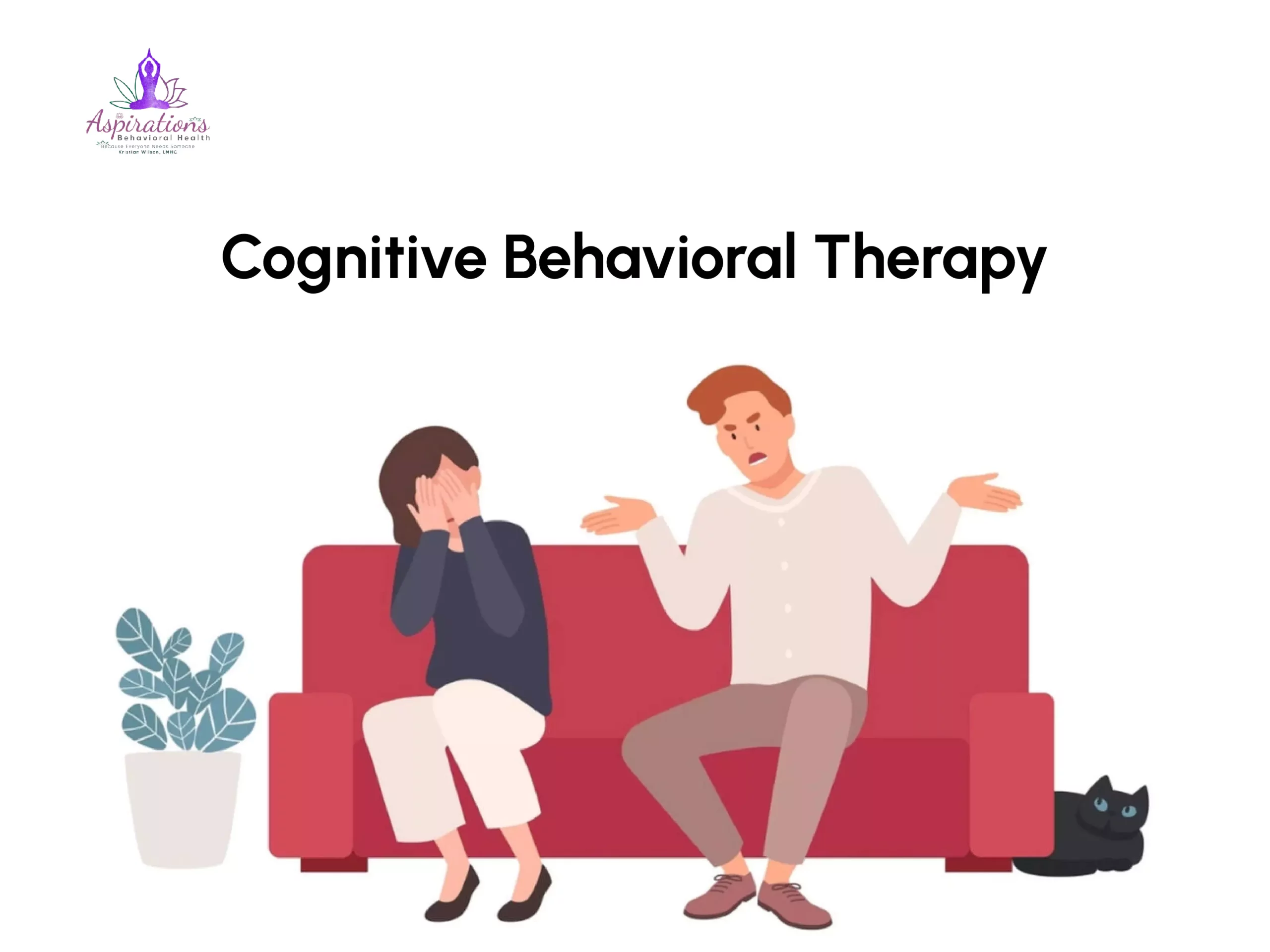
CBT is a structured, evidence-based treatment strategy for identifying and modifying dysfunctional thinking patterns and behaviors. CBT asserts that modifying negative thought patterns can result in positive changes in feelings and behavior based on the concept that thoughts, feelings, and actions are interconnected. Clients and therapists frequently work together to explore and reframe unreasonable or damaging ideas during sessions.
Individuals learn to challenge incorrect understandings and establish healthier coping mechanisms through exercises and dialogues. CBT has been thoroughly examined and proved helpful for various diseases, including depression, anxiety, and post-traumatic stress disorder. CBT techniques are practical and usable in daily life, providing clients with tools to deal with current issues and anticipated future stressors.
Benefits of Cognitive Behavioral Therapy
- Provides practical tools for managing anxiety, depression, and other disorders.
- Offers a structured approach with measurable progress and goals.
- Teaches individuals to challenge and modify distorted thoughts and behaviors.
- Equips clients with skills that can be applied throughout life, promoting lasting change.
9. Internal Family Systems
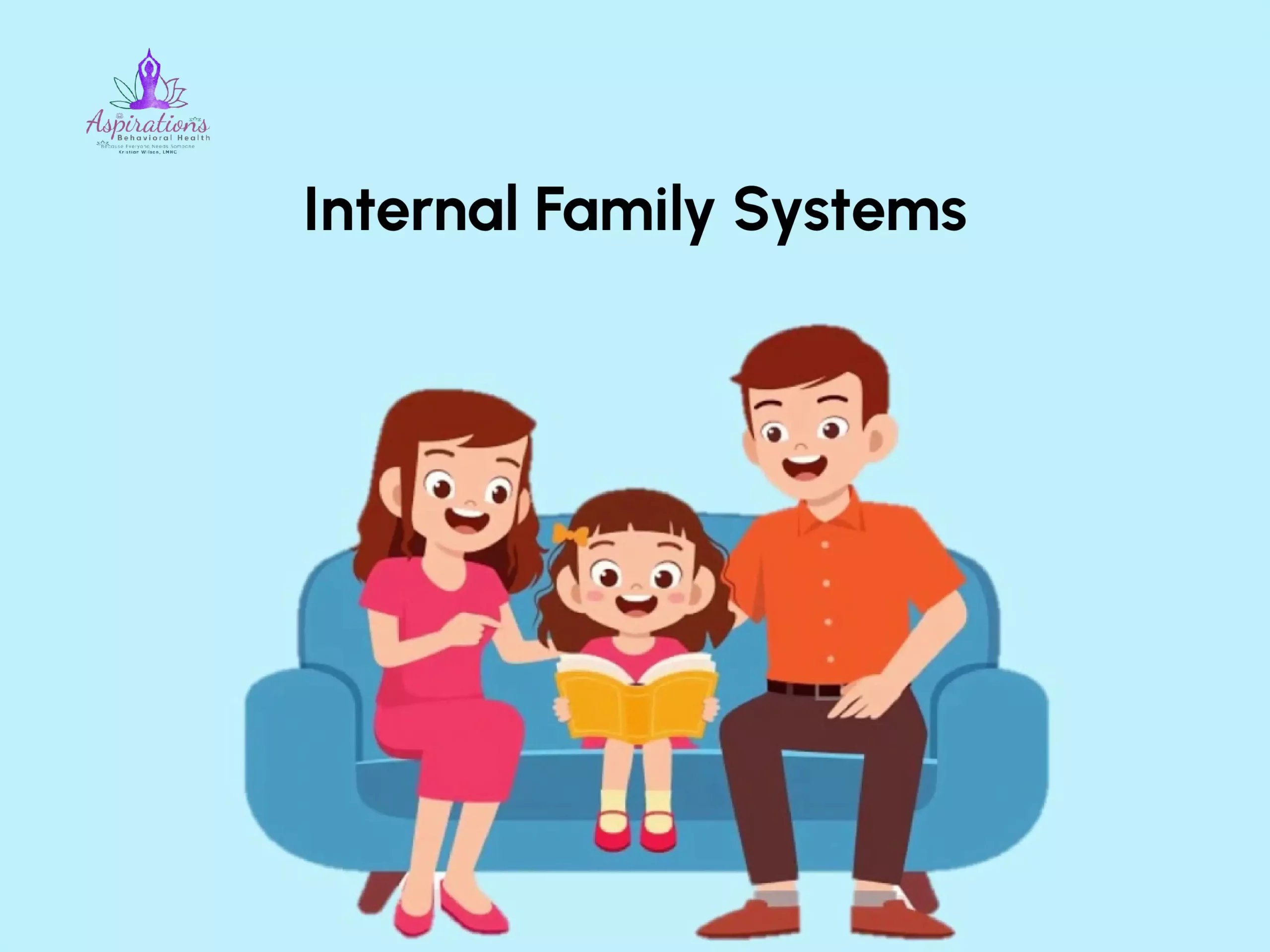
Internal Family Systems (IFS) is a therapeutic method that considers the mind a collection of sub-personalities or “parts.” These parts collaborate in the same way that family members do, each with their own perspectives, feelings, and intentions. According to the IFS, healing happens when we understand and embrace these elements, allowing for a harmonious internal system.
The “self” – the core or essence of an individual, marked by attributes such as clarity, compassion, and courage – is at the heart of this approach. Therapy aims to gain control of oneself, harmonize one’s various aspects, and resolve any internal problems.
Benefits of the Internal Family Systems
- Addresses marriage counseling goals by enhancing mutual understanding of each partner’s internal dynamics.
- Offers a unique lens among types of relationship counseling, emphasizing internal relationships and their external manifestations.
- Facilitates deep self-awareness, leading to genuine self-compassion and healing.
- It empowers individuals to manage their own mental processes more effectively, fostering inner harmony.
Get the Best Online Marriage and Couples Counseling with Aspirations Behavioral Health
Navigating relationship challenges requires understanding, patience, and expert guidance. At Aspirations Behavioral Health, I prioritize your relationship’s health and longevity. With my top-notch online marriage and couples counseling, you can access professional help from the comfort of your home.
The founder of ABH is a licensed therapist with years of experience catering to diverse relationship dynamics and challenges. I am here to assist you whether you seek tools to enhance communication or solutions to persistent issues.
Trust us to provide a confidential, supportive environment to reignite your bond. Don’t let distance or schedules hinder your path to a stronger relationship. Schedule your online session today and invest in a happier, healthier relationship future!
Aspirations Behavioral Health offers a wide range of services, including:
Online Individual Consultation And Coaching
Online Child And Adolescent Therapy
Types of Marriage & Couples Counseling FAQs:
What type of marriage counseling is best?
The optimal type of marriage counseling is subjective and is determined by the couple’s specific issues and preferences. Emotionally Focused Therapy (EFT) is well-known for its ability to help people form strong emotional attachments. Couples should conduct a study and contact professionals to decide the best-required technique.
How do I choose a couples Counsellor?
Choosing a relationship therapist entails investigating their credentials, comprehending their therapeutic method, and developing a comfortable relationship. Reviews and testimonials provide helpful information. Selecting someone who specializes in relationship counseling and will connect with both sides is critical. An introductory session can aid in determining compatibility and expertise.
What is the downside of couples therapy?
The disadvantages of couples counseling include the possibility of confronting hard issues, emotional anguish, and financial costs. If concealed fears surface, it may first worsen the conflict. There is no guarantee of success; nonetheless, treatment may reveal that divorce is the healthiest decision. Furthermore, the outcomes are heavily reliant on the therapist’s expertise and the efforts of both parties.
Can couples therapy save a toxic relationship?
Couples counseling can help you solve relationship challenges by giving you skills and insights. However, the ability of both parties to change and the depth of the toxicity are required to save a toxic relationship. Although therapy has the potential to be transformative, it cannot guarantee success, especially when the behavior is abusive or when a partner is unwilling to change.
What is one of the top concerns for couples in therapy?
Communication breakdowns are one of the most common issues for couples in treatment. Many couples struggle to communicate their feelings effectively, wants, and concerns, which leads to misunderstandings, resentment, and emotional distance. Effective communication is critical to mutual understanding and the general health of a relationship; hence, it is a key focus of therapy sessions.
Conclusion
Choosing the right therapy can be as intricate as the nuances of love itself. With many couples therapy types at your fingertips, every relationship challenge finds its antidote. Whether you are searching for the best marriage counselors or seeking expert marriage guidance, a therapeutic beacon shines just for you.
From the well-regarded realms of recommended marriage counseling to the expansive universe of types of relationship counseling, the tools for a harmonious union are within reach. So, let your love story flourish and evolve; remember, the path to everlasting connection might just be a counseling session away. Dive into the therapeutic world and let love guide the way.

